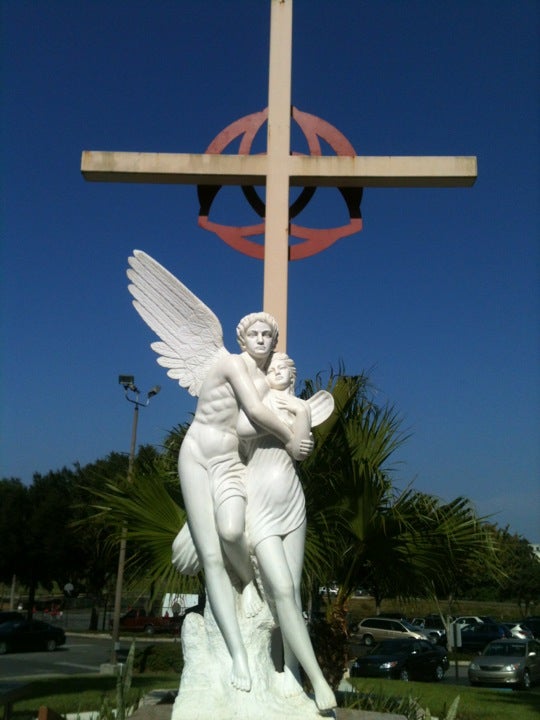
Christian Music Compositions.
Over the years, I have found myself with the need to compose music , mostly for Catholic church services. it started in 1989, while Music Director at the largest parish in the Archdiocese of Boston, St Mary’s in Franklin, MA. It continued during my two tenures at Our Lady Comforter of the Afflicted in Waltham, MA, then at St Joseph in Salem, MA, and at Blessed trinity in Ocala, Florida.
The Liturgy of the Word and the Psalms: Any Catholic music director knows that one of the most difficult things to compose effectively are Psalms. In the Catholic Liturgy, during the Mass, the first part of the Mass is called Liturgy of the Word. It includes four readings, all proclaimed from the ambo, which is the podium dedicated to proclaim the Holy Scriptures. The fours readings are; one reading from the Old Testament, a Psalm taken from the Book of Psalms, a second reading from the New Testament (usually a letter of St Paul to the Apostles) and the Gospel Reading which is a section from one of the four synoptic Gospels. All readings are read, to the exception of the Psalm which is sung. The Psalm is cantored, in the Jewish tradition of the Psalm, with a structure in an antiphonal fashion: The cantor presents the Psalm Refrain repeated by the congregation then the cantor sings the verses. The Refrain completes every versem sung by the congregation alone. Preferably, a priest or deacon should proclaim the Psalm, However, for musical and practicality reasons, the Psalm is usually proclaims by the leader of song. The leader of songs is usually a lay person who leads the assembly in congregational singing, from a pulpit dedicated to it, separate from the ambo. From that pulpit are also done all announcements not pertinent to the liturgy (for example guest speakers) usually done during the Offertory or most often at the end of Mass prior to the final blessing. Thus the ambo is reserved for the proclaiming of the Word. it is also the preferred place for a homelist to speak his sermon.
The Psalm and its particularities:
The Catholic Church in the English speaking countries uses an officially approved English translation of the texts (ICEL, International Commission on English in the Liturgy). The Catholic Music Director is presented with different choices when deciding on a musical setting for a Psalm. Normally, the chosen Psalm should be the psalm of that particular day as indicated by the Roman Missal. Thus, for each Sunday Mass and each liturgical celebration. the psalm will be changed, following the readings three year cycle. However, there are not many settings for each Psalm of the year. Some liturgical musicians have tried to come up with different settings for each Sunday liturgy following the regular Sunday readings. That has had different results. Some of the Psalms are easier to put into music than others. Others are far more difficult to set to music given their structure and versification. This is why the music director can also choose a “seasonal Psalm
, that is a psalm that may be used for an entire season, for example for the Ordinary Time, or for Advent. However, although that use is permitted, it is not recommended. Another possibility is for music directors to use a “psalm paraphrase4” (paraphrase on a psalm). It is not technically a literal musical setting of a specific Psalm, but it encompasses many of the essential of the Psalm. Some of the wording may have been modified to fit the music better. This usage is always debated among liturgists and clergy. Some places absolutely do not recommend it while others are more lenient in their usage.
Listing of Psalms (Patrick Botti)
- Psalm
- Psalm
- Psalm
- Psalm
- Psalm
- Psalm
- Psalm
- Psalm
- Psalm
